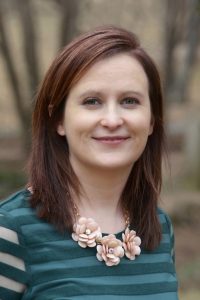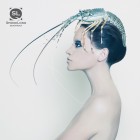The night after I read this story, my 6-year-old son said to me, “Mommy, I want to never leave you.” But I do not have a locket large enough to stuff him inside. What do you recommend?
In August, my oldest daughter left for college. These were the options I considered: a very tall tower, a genie’s lamp, a shoe (I’ve heard they are a great option for those of us with so many children we don’t know what to do), or to hide her inside of a walnut shell, hidden inside of an egg, hidden inside of a duck, hidden inside of a wolf. The latter seemed to be the most workable idea, but alas, the wolf was un-receptive to training, and the duck flew south for the winter, and she is allergic to walnuts. College, then. At least I know where she is.
Where does this Queen put all the heads she cuts off? Or is she one of those people that never carries through on her threats?
Have you ever seen a wine cellar? I imagine it is something like that.
One of the things I absolutely love about your stories is all the strong female characters. They are all so no-nonsense, efficient, confident, and bad-ass. Who were your female role models growing up (and now)? How did they influence your writing?
Once upon a time, I went to go protest at the old Honeywell plant in Minneapolis with a bunch of nuns. Honeywell, as you may know, had significant contracts with the US military, specifically in their incessant production of nuclear weapons. I was accompanied by a bunch of nuns – badass women, all – and we were arrested. The cops were well familiar with the strong-jawed ladies of the cloth, and were deferential and solicitous and a little bit terrified. It was a remarkable experience for me, at fifteen, to see a bunch of armed, muscled, giant cops literally quaking in their boots at the thought of facing a squadron of tiny, wrinkly, little old ladies. It made me excited, frankly, to be a little old lady myself, one day.
So you write stories for grown-ups and stories for children. Which is more fun? Do you get fan letters from kids? Are they better written than the fan letters from adults?
I get marvelous letters from kids. They tell me that they have an uncle that read my book and ask if I know them. They ask me if this is my actual handwriting. They ask me if I have even met a dragon who can fit in my pocket (yes, is the answer; of course it is yes). They ask me if I will be writing a sequel (no, alas). They ask me if I was funny when I was little and if my kids read my books (no to both) and if it’s possible to really turn a person’s house into cake. Adults, on the other hand, are boring. They ask me where I get my ideas and how much it costs for me to come to their library and whether I’ll read their manuscript or where I got that shirt in that photo shoot one time. I prefer kids.
What’s your secret magical power?
I have two. First, I have the ability to grasp very hot objects and not get burned. This is a skill that is functionally useless, save for the occasional moments when I need to get something out of the oven and I can’t find a potholder. My other superpower is that I have the ability to make people feel AMAZING about themselves. This is true. I have Giant Love Beams. The caveat, of course, is that I have the equal and opposite superpower as well, and can make people feel terrible if I want to. This came in useful one time when I was speaking in front of the school board about a particularly terrible reading curriculum choice, and by the time I was done speaking, I had reduced ever single member of the Board to tears. This is true. It is a superpower that I must employ sparingly, of course, and that was the only time I had ever done it. With great power, as we know, comes great responsibility.




 The SmokeLong Grand Micro Contest (The Mikey) is now an annual competition celebrating and compensating the best micro fiction and nonfiction online.
The SmokeLong Grand Micro Contest (The Mikey) is now an annual competition celebrating and compensating the best micro fiction and nonfiction online.